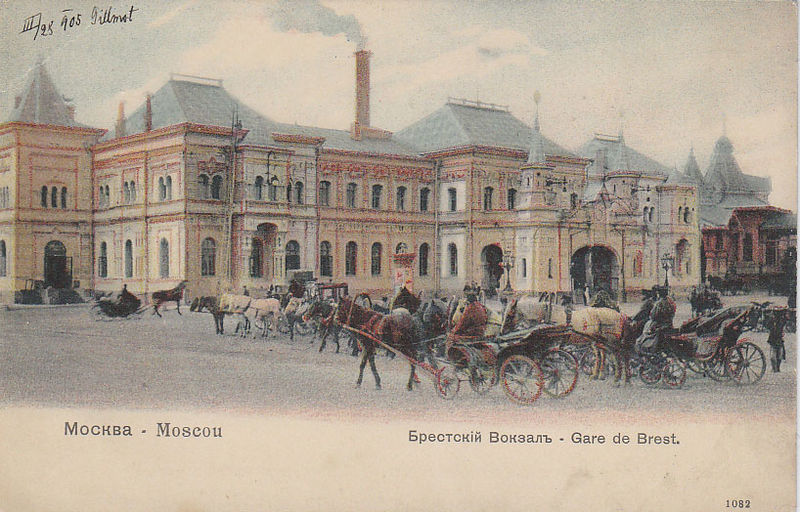Moscow Smolenskaya: Farewell, Slavianka
Belorussky station was originally opened in 1870 running a route westward to service the Russian city of Smolensk. However, decades of Russian imperial ambitions that focused on Eastern Europe extended the route to include Belarus, Lithuania, Poland, Germany, Czechoslovakia, and Latvia. The increased traffic in and out of Belorussky station as a result of the extended route caused the modest Belorussky Station to be completely rebuilt and redesigned several times so that it is now one of the largest stations in Moscow (1).
Starting with the Russo-Turkish War from 1877 to 1878, the Russian Empire began to shift its international focus on Eastern Europe, particularly the Balkans (2). Late 19th and early 20th century tsars took advantage of the rise of nationalism across Europe to further their expansionist agenda. In particular, pan-Slavism among ethnic Slavs in Balkan states, such as Serbia and Albania, stoked Russia's desire to increase its footing in Europe (2). The tsars believed that they were the Slavic regime and Russia was the Slavic country which could consolidate and nationalize a people who were spread across many different nations.
From 1912 to 1913, the First Balkan War took place in the Balkan states. Fighting primarily took place between the Balkan League and the Ottoman Empire, but the major superpowers of Europe became entangled as a result of alliances. Russia, backing the Balkan League and hoping to eventually assert its Slavism and imperial might in the region, directly came at odds with the Austro-Hungarian Empire and the German Empire who officially backed the Ottomans (2).
As the only pathway west, Russian soldiers were seen off by their mothers and wives at Belorussky station to leave and engage in this bloody conflict. Many of the soldiers did not return home, and the sight of these tearful goodbyes caused Vasily Agapkin to write "Farewell of Slavianka," a patriotic march that commemorates the women who saw their husbands leave for duty. This march became a favorite of the Soviet Red Army, and a recent 2014 statue was unveiled at Belorussky station to honor these women (3).
According to Bregu, the First Balkan War can be seen as precursor to World War I and similar to the Balkan Wars, Russian soldiers left for the Eastern Front of the First World War from Belorussky station. After the loss of many Russian lives in this conflict, the Red Army took advantage of the political situation and overthrew the tsars in the October Revolution.
Despite the regime change, Russia's ambitions in Eastern Europe did not dampen. The USSR held vast expanses of Poland and the many Soviet satellite states after the fall of the Russian Empire. Belorussky station, important as the main path to these states in Europe, situated in Moscow, which was renamed the capitol of the USSR, had a constant flux of Soviets between the capitol and the tense Eastern Bloc. When World War II broke out with the rise of the Nazi regime, similar to prior conflicts, Soviet soldiers departed from Belorussky station to engage in conflict. When the Soviets, despite massive loss of life, were victorious in the Second World War, returning soldiers were greeted with huge crowds and parades at Belorussky station (1).
Ultimately, Belorussky station stood as the threshold to European conflict for Moscow. Soldiers, accompanied by their loved ones, departed from this station for numerous wars during the 19th and 20th centuries. Many did not return. The Russian Empire and USSR's desire to be key-players in the European arena forced conflicts in Eastern Europe, and almost all of the loss of life and tragedy of these wars connected through Moscow at Belorussky.


